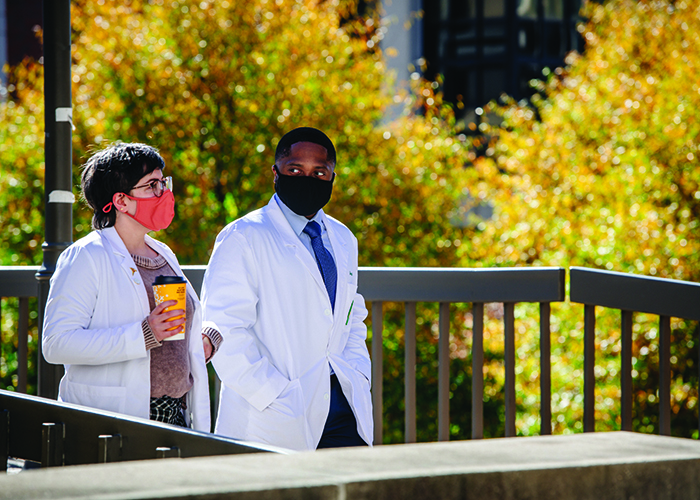 The UAB School of Medicine is once again undergoing the rigorous self-study process to gain re-accreditation from the Liaison Committee on Medical Education (LCME).
The UAB School of Medicine is once again undergoing the rigorous self-study process to gain re-accreditation from the Liaison Committee on Medical Education (LCME).
Work began in summer 2020, with faculty and staff gathering data that will be reviewed and submitted to the LCME. An internal task force will begin a self-study in spring 2021, along with an independent survey of medical students designed and analyzed by student leaders, culminating in a site visit from an LCME team, planned for April 10-13, 2022.
“Preparing to renew our LCME accreditation is a great opportunity for self-reflection, capturing areas where we’re performing well, and identifying areas where we can grow and improve, making sure we’re providing the highest quality medical education for our students,” says Craig Hoesley, senior associate dean for Medical Education. “Accreditation is foundational to us being an academic medical center, and our leaders, faculty and staff are working diligently to secure a successful re-accreditation.”
Catherine Fuller, Ph.D., professor in the Department of Cell, Integrative and Developmental Biology, and Gustavo Heudebert, M.D., MACP, professor in the Department of Medicine and former interim regional dean for the Montgomery Regional Medical Campus, are leading the re-accreditation process as the Faculty Accreditation Co-Leads.
The LCME, sponsored by the Association of American Medical Colleges and the American Medical Association, is the nationally recognized accrediting authority for medical education programs leading to the M.D. degree in the U.S. The re-accreditation process is one of peer-review that assures medical schools are continually improving and meeting established standards that foster institutional and programmatic improvement.

Students and graduates of LCME-accredited medical schools are eligible to take the United States Medical Licensing Examination and enter ACGME-approved residency programs. Graduation from an LCME-accredited medical school is, in most states, a prerequisite for medical licensure.
“We learn a lot about ourselves as an institution during the re-accreditation process and develop new programs or initiatives from that to keep moving the school forward,” Hoesley says.
Examples of programs created in response to LCME visits include the establishment of the Learning Communities program, small groups led by faculty mentors that serve as a home base for students throughout their medical schoolcareer; the expansion of the Office of Diversity & Inclusion; and previous renovations to Volker Hall as well as upcoming renovations to the building to provide students more opportunities for active learning.
The School of Medicine holds full accreditation from its last LCME survey visit in 2014, when it achieved the highest level of accreditation available to a medical school in the U.S. At that time, in a letter sent to UAB President Ray Watts, M.D., the LCME commended the school on its strengths in allowing the exploration of diverse aspects of medicine through student electives and in present and anticipated financial resources. The letter also noted the school’s ongoing efforts in diversity, especially in recruiting more female faculty, and in the continued development of the three regional campuses. Learn more about the School of Medicine’s re-accreditation efforts online at go.uab.edu/lcme. ~Kendra Carter